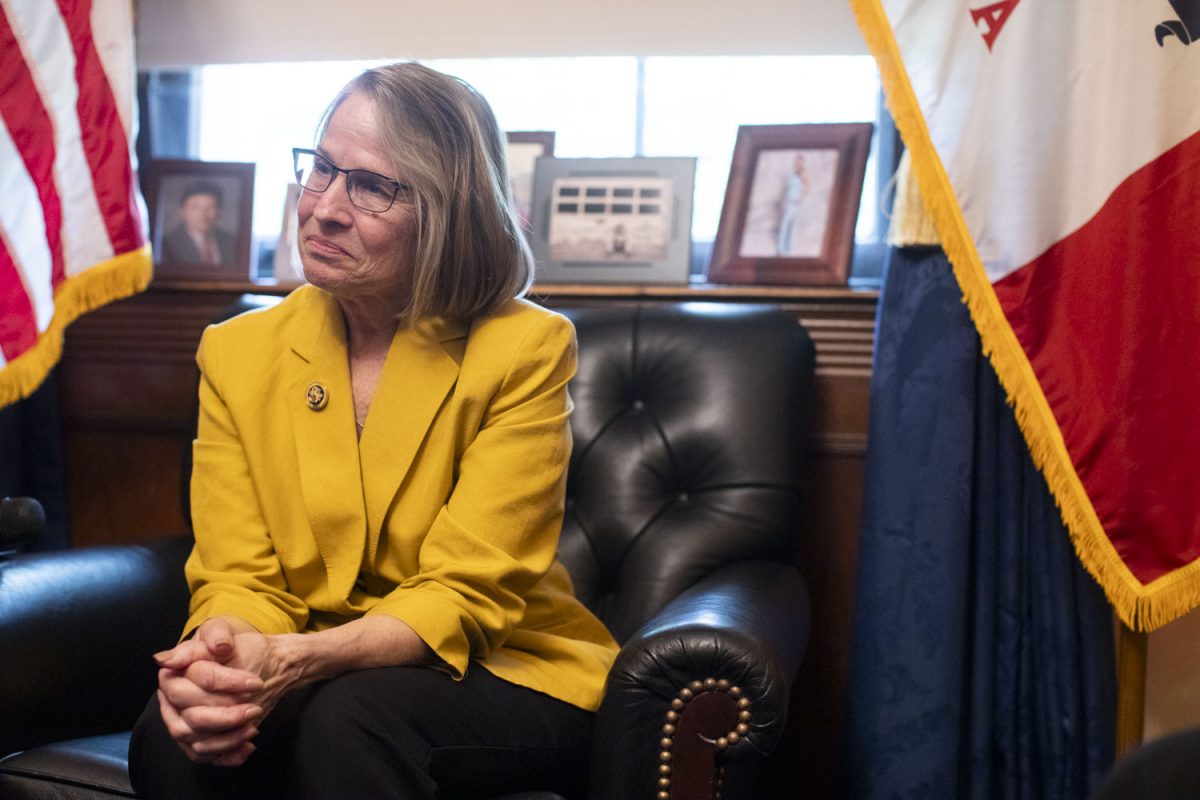U.S. Rep. Mariannette Miller-Meeks, R-Iowa, helped obtain nearly $1.5 million of congressional funding disbursed by the National Aeronautics and Space Administration. Miller-Meeks stopped at Van Allen Hall on the University of Iowa’s campus on Friday afternoon to meet with university faculty, tour space equipment, and discuss the importance of funding for the Iowa workforce.
Miller-Meeks originally requested funding for the Space Technology Innovation and Education project for the University of Iowa’s Department of Physics and Astronomy in 2023, and the funds were disbursed by NASA to the university earlier this week.
The funding request asked for the purchase of advanced manufacturing equipment, new semiconductor lubrication tooling, and satellite communications hardware to enable technology development and research support of NASA’s exploration missions.
The funding will be used to build advanced space equipment and provide students with greater access to advanced space instrument training.
Miller-Meeks said the funding helps further NASA’s mission and STEM education.
“What they’re doing is training other young individuals in math, science, technology, innovation, so utilizing all of those assets and then developing future scientists and having an avenue for them to go out of the theoretical into the practical,” Miller-Meeks said.
Casey DeRoo, associate professor in the Department of Physics and Astronomy and the award’s principal investigator, said the funding will help expand the Edge of Space program, a two-week undergraduate summer program in which participants go through all of the phases of mission design and planning.
DeRoo said the university typically obtains funding through open solicitation, however, with Miller-Meeks partnership they were able to receive support through congressional funding.
“University of Iowa is one of the few places, honestly in the world, where students touch hardware that then goes into space,” DeRoo said. “Most of the time that construction and fabrication is done by professionals. In our case, we have students who come out of high school, go through our physics and astronomy program and build things.”
DeRoo and other UI faculty led Miller-Meeks through Van Allen Hall on a tour of the equipment. University president Barbara Wilson made a stop to thank Miller-Meeks for her involvement in securing the funding.
Cecilia Fasano, a graduate research assistant who conducts research with DeRoo, demonstrated her group’s creation — an ultraviolet diffraction ray — to Miller-Meeks. She said the funding helps her personal research as well as boosting workforce development.
Fasano said the technology is important for national defense and infrastructure, and undergraduate training on the equipment increases their chances of being hired after graduation.
DeRoo said the award creates the opportunity for the UI to partner with commercial aerospace and advanced manufacturers and expand undergraduate offerings to train students to enter the workforce.
“Advanced manufacturing is a major component of the state economy,” DeRoo said. “Those businesses are going to need STEM educated individuals coming out of places like the University of Iowa to be able to essentially expand and grow their workforce and do the work they need to do.”



